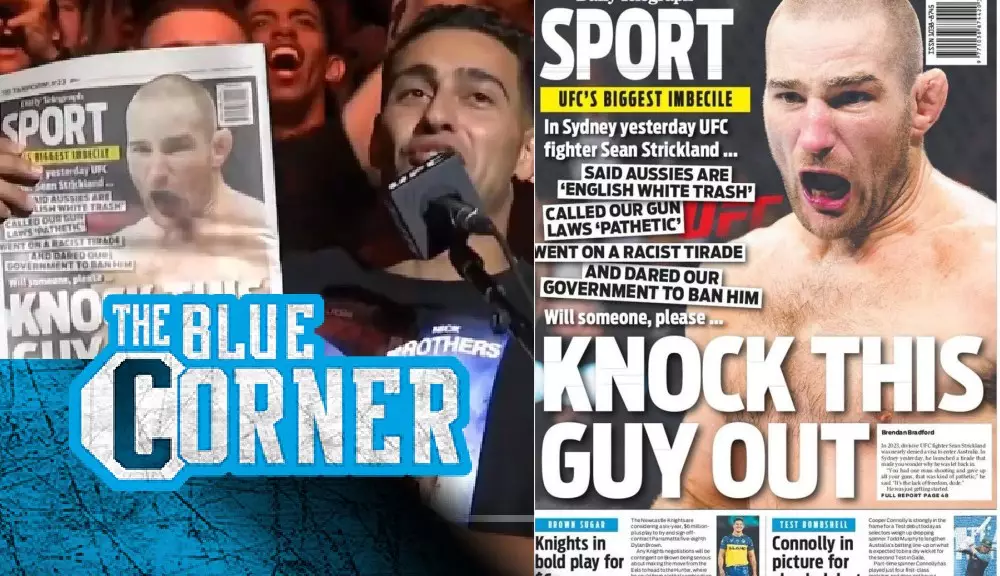MMA fighter Sean Strickland has often made headlines for his outspoken nature, but his recent controversy in Australia has placed him squarely in the spotlight for all the wrong reasons. As he prepares for his title bout against reigning middleweight champion Dricus Du Plessis at UFC 312, Strickland’s remarks have triggered backlash, particularly among the Australian media. Known for his unfiltered opinions on a variety of topics ranging from politics to societal norms during media engagements, Strickland’s comments at the pre-fight press conference have sparked outrage that transcends the typical buzz surrounding a fight.
Set against the vibrant backdrop of Sydney’s Qudos Bank Arena, UFC 312 ought to have been a celebration of sport. Instead, it rapidly transformed into a stage for Strickland’s controversial rhetoric. His challenge for the middleweight championship is monumental for his career, yet his tendency to eschew political correctness has overshadowed the excitement for the fight. Strickland’s declaration of coming to Australia to freely discuss issues surrounding freedom of speech, gun rights, and taxes elicited reactions that ranged from dismay to outright condemnation.
Local media outlets, including The Daily Telegraph, have not held back in their response. The publication even went as far as labeling Strickland as the “UFC’s biggest imbecile,” showcasing a level of disdain that highlights the disconnect between the fighter’s views and the sentiments of the Australian public. Strickland’s remarks, dismissing critical views from the media as a ploy by “communists,” further exemplify his penchant for incendiary commentaries that often alienate him from fans and critics alike.
The crux of the issue lies not merely in Strickland’s comments but in the broader conversation about freedom of speech and its limitations. While he champions the right to voice unpopular opinions, it cannot be ignored that such declarations come with consequences. Strickland’s characterization of the media as hostile simply because they criticized him illustrates the thin line between holding one’s ground on free expression and failing to recognize the responsibilities that accompany such liberties. His approach could potentially jeopardize his reputation, especially in a sport that thrives on a balance of authenticity and respect.
As Strickland prepares to step into the octagon against Du Plessis, his previous remarks will undoubtedly linger, affecting not just his public persona but potentially the atmosphere during the fight. Will audiences rally to support a fighter who cracks easily under scrutiny? Or will they view him as a figure who has lost sight of the sport’s spirit in favor of his abrasive commentary? While the world of mixed martial arts often revels in polarizing figures, Strickland’s current trajectory raises profound questions about how far one can ride the wave of controversy without drowning in it.
Sean Strickland’s recent comments have catalyzed an essential dialogue about the intersection of sports, politics, and personal accountability. As UFC 312 approaches, the repercussions of his outbursts will not merely define the event but also shape the ongoing narrative of his career in the UFC landscape.

